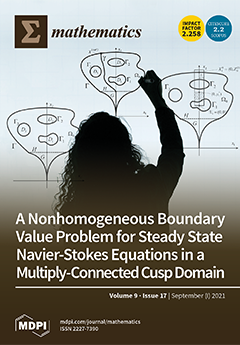Soft
-local indiscreetness as a weaker form of both soft local countability and soft local indiscreetness is introduced. Then soft
-regularity as a weaker form of both soft regularity and soft
-local indiscreetness is defined and investigated. Additionally, soft
[...] Read more.
Soft
-local indiscreetness as a weaker form of both soft local countability and soft local indiscreetness is introduced. Then soft
-regularity as a weaker form of both soft regularity and soft
-local indiscreetness is defined and investigated. Additionally, soft
-
as a new soft topological property that lies strictly between soft
and soft
is defined and investigated. It is proved that soft anti-local countability is a sufficient condition for equivalence between soft
-locally indiscreetness (resp. soft
-regularity) and soft locally indiscreetness (resp. soft
-regularity). Additionally, it is proved that the induced topological spaces of a soft
-locally indiscrete (resp. soft
-regular, soft
-
) soft topological space are (resp.
-regular,
-
) topological spaces. Additionally, it is proved that the generated soft topological space of a family of
-locally indiscrete (resp.
-regular,
-
) topological spaces is soft
-locally indiscrete and vice versa. In addition to these, soft product theorems regarding soft
-regular and soft
-
soft topological spaces are obtained. Moreover, it is proved that soft
-regular and soft
-
are hereditarily under soft subspaces.
Full article


